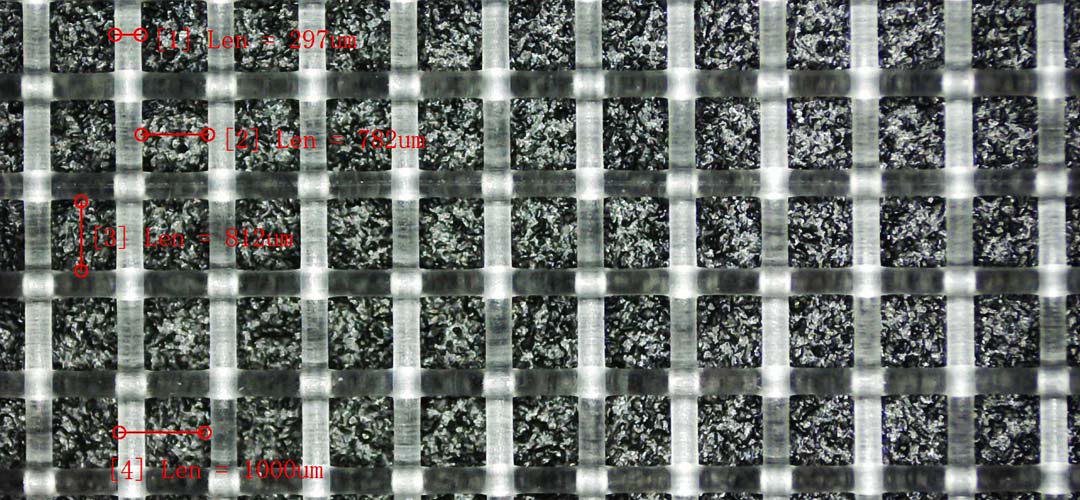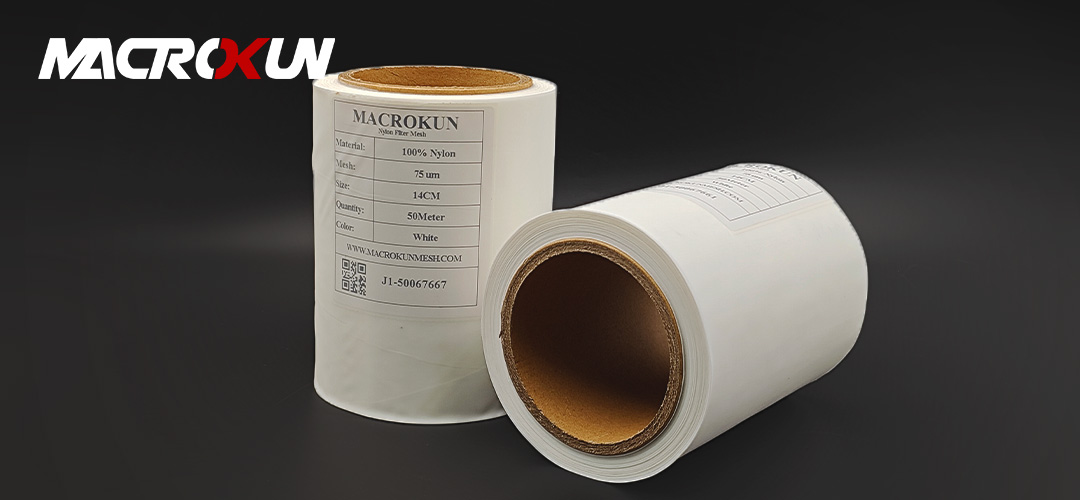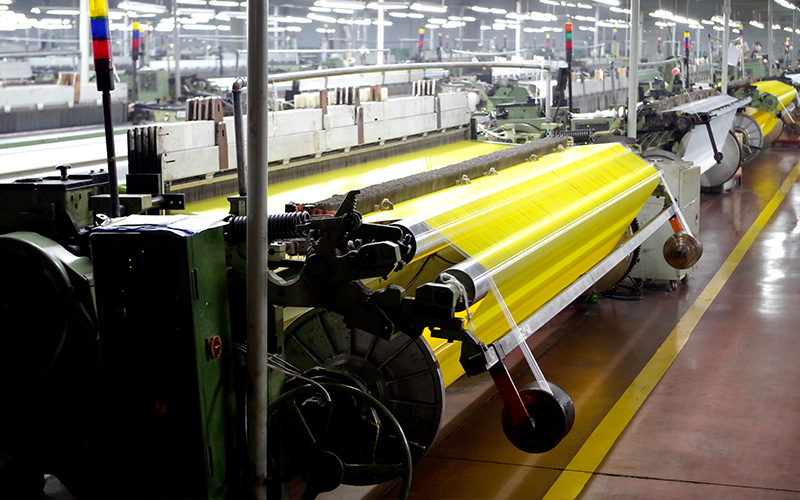Nylon mesh materials have become an essential component in modern manufacturing processes due to their versatility and durability. These materials are made from synthetic polymers that are woven into a mesh structure, providing strength and flexibility for a wide range of applications. In this article, we will explore the advantages of using nylon mesh materials in manufacturing and how they have revolutionized the industry.
One of the key advantages of nylon mesh materials is their strength and durability. Nylon is known for its high tensile strength, making it ideal for applications that require a material that can withstand heavy loads and high temperatures. This strength allows nylon mesh materials to be used in a variety of manufacturing processes, from filtration to conveyor belts.
In addition to their strength, nylon mesh materials are also highly flexible. This flexibility allows manufacturers to create intricate designs and shapes that would be difficult to achieve with other materials. Nylon mesh can be easily molded and shaped to fit specific requirements, making it a versatile option for a wide range of applications.
Another advantage of using nylon mesh materials in manufacturing is their resistance to chemicals and abrasion. Nylon is a non-reactive material that can withstand exposure to a wide range of chemicals without degrading. This makes it an ideal choice for applications where the material will come into contact with harsh substances.
Furthermore, nylon mesh materials are lightweight and easy to work with, making them a cost-effective option for manufacturers. The lightweight nature of nylon mesh materials reduces shipping costs and makes them easier to handle during the manufacturing process. This can lead to increased efficiency and productivity for manufacturers.
Nylon mesh materials are also easy to clean and maintain, making them a hygienic option for applications in industries such as food processing and pharmaceuticals. The smooth surface of nylon mesh materials prevents bacteria and other contaminants from adhering to the material, reducing the risk of contamination in manufacturing processes.
Overall, the advantages of using nylon mesh materials in manufacturing processes are clear. Their strength, flexibility, resistance to chemicals and abrasion, lightweight nature, and ease of maintenance make them an ideal choice for a wide range of applications. Manufacturers can benefit from increased efficiency, productivity, and cost savings by incorporating nylon mesh materials into their processes.
In conclusion, nylon mesh materials have revolutionized the manufacturing industry by providing a versatile and durable option for a wide range of applications. Their unique properties make them an ideal choice for manufacturers looking to improve efficiency, productivity, and cost-effectiveness. By utilizing nylon mesh materials in their processes, manufacturers can stay ahead of the competition and meet the demands of a rapidly evolving industry.
Nylon mesh materials have become an essential component in modern manufacturing processes across various industries. The versatility and durability of nylon make it an ideal choice for a wide range of applications, from filtration to screen printing. In this article, we will explore how nylon mesh materials are used in different industries and the benefits they offer.
One of the most common uses of nylon mesh materials is in the filtration industry. Nylon mesh filters are used to remove impurities and contaminants from liquids and gases in a wide range of applications, including water treatment, food and beverage processing, and pharmaceutical manufacturing. The fine mesh size of nylon filters allows for efficient filtration while maintaining high flow rates, making them an essential tool for ensuring product quality and safety.
In the medical industry, nylon mesh materials are used in the production of surgical implants and medical devices. The biocompatibility and strength of nylon make it an ideal material for applications such as hernia repair meshes, sutures, and vascular grafts. Nylon mesh implants are lightweight, flexible, and resistant to bacteria, making them a popular choice for medical professionals looking for reliable and long-lasting solutions.

Another industry that benefits from the use of nylon mesh materials is the automotive sector. Nylon mesh is used in automotive air filters to trap dust, pollen, and other particles that can damage the engine. The durability and heat resistance of nylon make it an ideal material for this application, ensuring that the air filter can withstand the harsh conditions of the engine compartment and provide optimal performance.
In the electronics industry, nylon mesh materials are used in the production of printed circuit boards (PCBs). Nylon mesh screens are used to apply solder paste to PCBs, ensuring precise and consistent soldering of electronic components. The high tensile strength and chemical resistance of nylon make it an ideal material for this application, allowing for efficient and reliable production of electronic devices.
The textile industry also relies on nylon mesh materials for a variety of applications, including screen printing and fabric reinforcement. Nylon mesh screens are used in screen printing to transfer ink onto fabrics, paper, and other materials with precision and accuracy. The flexibility and abrasion resistance of nylon make it an ideal material for this application, allowing for high-quality prints that are durable and long-lasting.
In the construction industry, nylon mesh materials are used in the production of concrete reinforcement products such as rebar chairs and mesh sheets. Nylon mesh provides structural support and reinforcement to concrete structures, improving their strength and durability. The lightweight and corrosion-resistant properties of nylon make it an ideal material for this application, ensuring that the concrete reinforcement products can withstand the rigors of construction projects.
Overall, nylon mesh materials play a crucial role in modern manufacturing processes across various industries. Their versatility, durability, and reliability make them an essential component in a wide range of applications, from filtration to screen printing. As technology continues to advance, we can expect to see even more innovative uses of nylon mesh materials in the future, further solidifying their importance in the manufacturing industry.
Nylon mesh materials have become an essential component in modern manufacturing processes, revolutionizing the way products are made across various industries. From automotive to medical devices, nylon mesh materials offer a wide range of benefits that improve manufacturing efficiency and product quality.
One of the key advantages of using nylon mesh materials in manufacturing is their durability and strength. Nylon is a synthetic polymer that is known for its high tensile strength and resistance to wear and tear. This makes it an ideal material for applications that require a high level of durability, such as filtration systems, conveyor belts, and protective gear.

In addition to their strength, nylon mesh materials are also lightweight and flexible, making them easy to work with and adapt to different manufacturing processes. This versatility allows manufacturers to use nylon mesh materials in a wide range of applications, from creating intricate patterns in textiles to reinforcing composite materials in aerospace engineering.
Another benefit of using nylon mesh materials in manufacturing is their ability to provide precise filtration and separation. Nylon mesh filters are commonly used in industries such as food and beverage, pharmaceuticals, and water treatment to remove impurities and contaminants from liquids and gases. The fine mesh size of nylon filters allows for efficient filtration without compromising flow rates, ensuring that products meet strict quality standards.
Furthermore, nylon mesh materials are resistant to chemicals and corrosion, making them suitable for harsh manufacturing environments. This resistance to chemicals allows manufacturers to use nylon mesh materials in applications where exposure to corrosive substances is common, such as in chemical processing plants and wastewater treatment facilities.
In recent years, there have been significant advancements in the development of nylon mesh materials for manufacturing. Innovations such as electrospinning and nanotechnology have enabled manufacturers to create nylon meshes with enhanced properties, such as increased strength, improved filtration efficiency, and reduced pore size.
For example, electrospinning is a technique that uses an electric field to draw out nylon fibers into a fine mesh structure. This process allows for the creation of ultra-thin nylon meshes with high surface area-to-volume ratios, making them ideal for applications that require precise filtration and separation.
Nanotechnology has also played a crucial role in the development of nylon mesh materials for manufacturing. By incorporating nanoparticles into nylon fibers, manufacturers can enhance the mechanical properties of nylon meshes, such as increasing their tensile strength and flexibility. This allows for the creation of nylon meshes that are more durable and resistant to wear and tear, making them suitable for demanding manufacturing applications.
Overall, nylon mesh materials have become an indispensable tool in modern manufacturing, offering a wide range of benefits that improve efficiency, product quality, and performance. With ongoing advancements in material science and manufacturing technologies, the future looks bright for nylon mesh materials, as they continue to drive innovation and revolutionize the way products are made across various industries.
Nylon mesh materials have become a staple in modern manufacturing due to their versatility and durability. From automotive to aerospace industries, nylon mesh materials are used in a wide range of applications. However, the environmental impact of these materials is a growing concern for many companies and consumers alike.
One of the main environmental issues associated with nylon mesh materials is their production process. Nylon is a synthetic polymer that is derived from petrochemicals, which are non-renewable resources. The production of nylon also requires a significant amount of energy and water, leading to greenhouse gas emissions and water pollution. Additionally, the disposal of nylon mesh materials at the end of their life cycle can contribute to plastic pollution in landfills and oceans.
Despite these environmental challenges, many manufacturers are taking steps to reduce the impact of nylon mesh materials on the environment. One approach is to use recycled nylon in the production of mesh materials. Recycled nylon is made from post-consumer waste, such as old fishing nets and carpet fibers, which helps to reduce the demand for new raw materials and decreases the amount of waste that ends up in landfills.
Another way that manufacturers are addressing the environmental impact of nylon mesh materials is by improving their production processes. By implementing more efficient technologies and practices, companies can reduce their energy and water consumption, as well as minimize their greenhouse gas emissions. Some manufacturers are also exploring alternative sources of nylon, such as bio-based or plant-based materials, which have a lower environmental footprint compared to traditional nylon.

In addition to using recycled materials and improving production processes, manufacturers are also looking at ways to extend the life cycle of nylon mesh materials. By designing products that are more durable and long-lasting, companies can reduce the amount of waste generated from discarded materials. Some manufacturers are also exploring options for recycling nylon mesh materials at the end of their life cycle, turning them into new products or raw materials for other industries.
Overall, the environmental impact of nylon mesh materials in modern manufacturing is a complex issue that requires a multi-faceted approach. While there are challenges associated with the production and disposal of nylon, there are also opportunities for innovation and improvement. By using recycled materials, improving production processes, and extending the life cycle of nylon mesh materials, manufacturers can reduce their environmental footprint and contribute to a more sustainable future.
In conclusion, nylon mesh materials play a crucial role in modern manufacturing, but their environmental impact cannot be ignored. By taking proactive steps to address the challenges associated with nylon production and disposal, manufacturers can minimize their impact on the environment and create a more sustainable industry. As consumer awareness of environmental issues continues to grow, companies that prioritize sustainability will be better positioned to succeed in the marketplace.

MACROKUN has established long-term and stable cooperative relations with many transportation companies such as China Post, DHL, FEDEX, USPS, UPS, etc. Of course, MACROKUN can also provide air and sea transportation. The powerful logistics system enables all MACROKUN'S Printing Mesh, Filter Mesh and Filter Bags and so on to be easily and efficiently transported to any place. For quotes and inquiries, please email our sales team.





